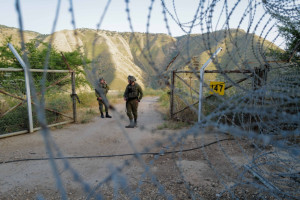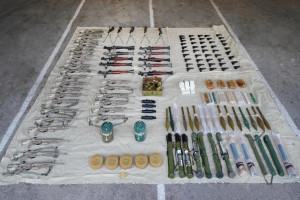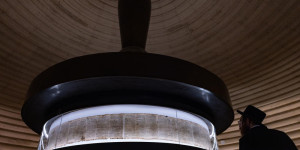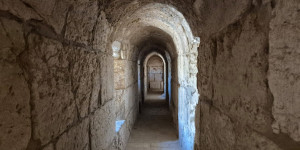Israel approves 5-year plan to boost security along Jordan border
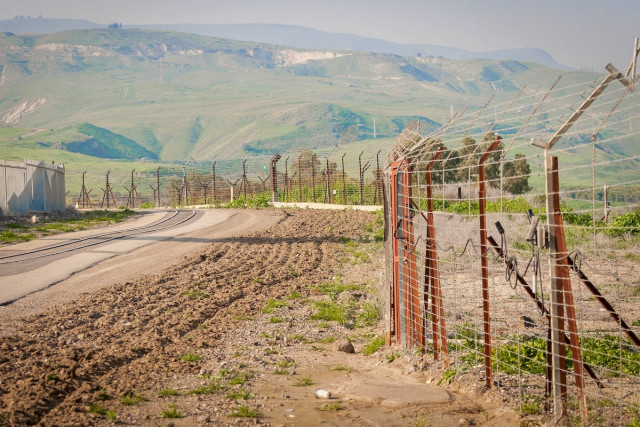
The Israeli government on Sunday approved a five-year plan to secure the country’s eastern border with the Kingdom of Jordan.
Orit Strock, Minister of Settlements and National Missions, allocated NIS 80 million (roughly $23 million USD) for the first year of the initiative. The plan was proposed by the NGO HaShomer HaChadash (The New Guard) following extensive discussions with the Defense, Finance, and National Missions ministries.
The involved ministries and the NGO announced that the plan "aims to restore governance and security to an area that has long been neglected." It envisions the establishment of a new border fence and a stronger IDF presence "in response to the growing number of infiltrations and weapons smuggling from the eastern border.” They added that the plan seeks to "integrate military and civilian settlement efforts, strengthen the continuity of communities, and lay the groundwork for long-term civilian presence in the region.
Stretching 482 kilometers (300 miles), the Jordanian border is one of Israel’s longest and is mostly unpopulated. The new Israeli security plan therefore also aims to establish new agricultural farms and religious yeshivot, which would strengthen Israel’s border communities.
HaShomer HaChadash revealed that strengthening Israel’s border security will require that "temporary housing units will be built to absorb new families who will join local defense teams, with a particular focus on families of IDF reservists. Additionally, agricultural farms will be established with grazing permits, following the model used in Judea and Samaria, alongside new student villages.”
HaShomer HaChadash founder Yoel Zilberman emphasized the importance of the plan.
"This is a historic moment. For the first time, the State of Israel is adopting a broad, Zionist approach that connects security, settlement, and agriculture to strengthen our eastern frontier. Yeshiva students, soldiers, and civilian mission units will stand shoulder to shoulder to defend the State of Israel. This is a reality-changing initiative," Zilberman argued.
In February, the Jerusalem Center for Security and Foreign Affairs revealed that a majority of Israelis fear a new Oct. 7-style attack from the east, specifically from Judea and Samaria, internationally known as the West Bank. Some 68% of Jewish Israelis responded that they were concerned about such a potential attack. By comparison, only 25% the Israeli Arab respondents said they were concerned.
Hamas, the terrorist organization, and its patron, the Iranian regime, have sought to escalate terrorism along Israel’s eastern border.
"We're all lost. We don't understand what's happening. We often hear explosions without any sirens, only learning what it was about after the fact. We're afraid. It reminds us of the days before October 7, when we’ve done nothing about missiles being launched against us. We feel like something big will happen soon," said Neta Turkletoyev, who lives in the Israeli community Be’er Ora close to the Jordanian border.
In March 2024, the Israeli military foiled an attempt to smuggle “game-changing” Iranian weapons to terrorists based in Judea and Samaria. The goal of the smuggling operation was reportedly to carry out a large terror attack in the State of Israel.

The All Israel News Staff is a team of journalists in Israel.
You might also like to read this:


